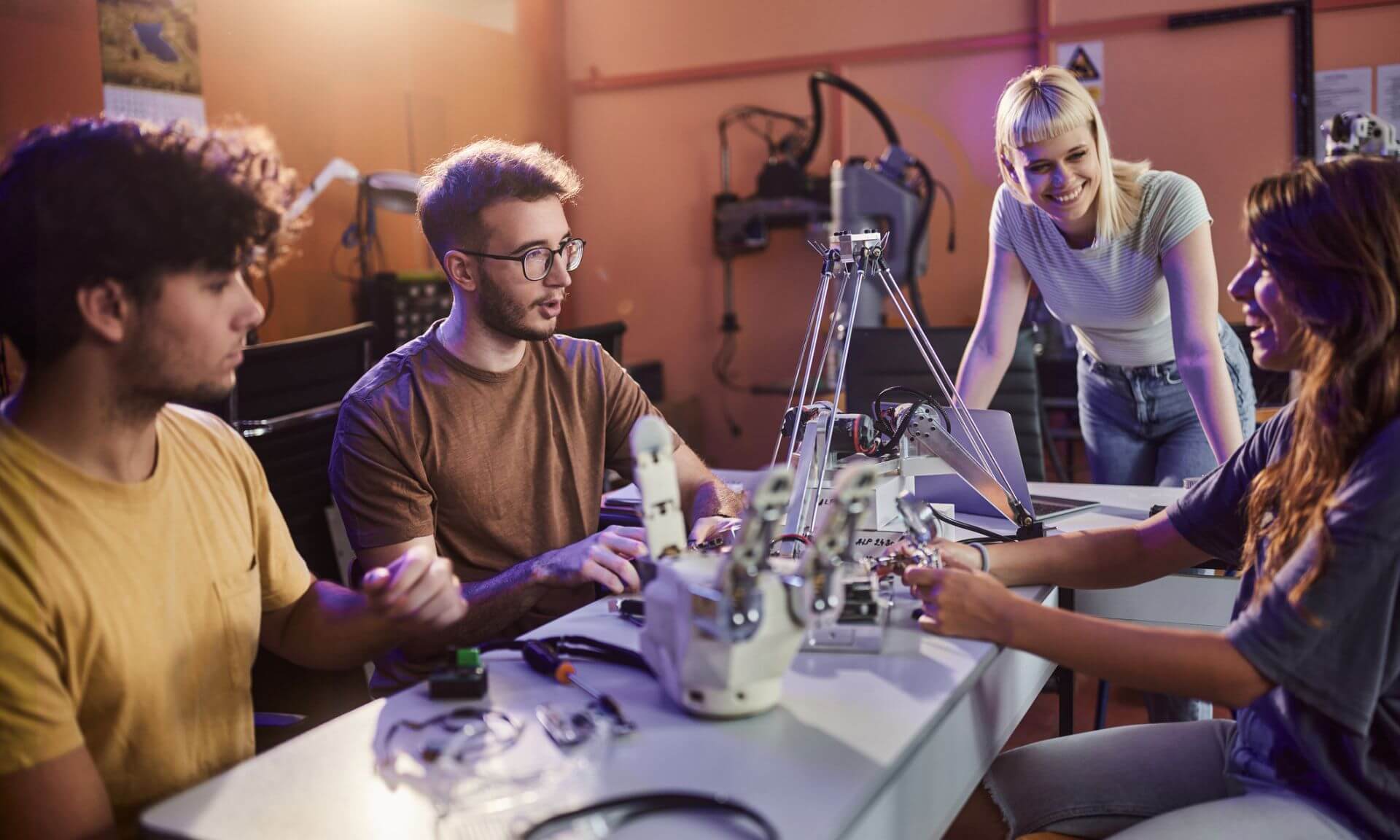Fighting antibiotic resistance with the power of automated microscopy and AI

Mothers at risk during childbirth, scratches that kill, earaches that cause deafness: this is what returning to a world without antibiotics would look like. Could ever-increasing antibiotic resistance make it happen? Caused mainly by the misuse and overuse of antibiotics in humans and animals, antibiotic resistance is now one of the greatest threats to public health globally.
Microbiologist Yves Brun, a professor in UdeM’s Department of Microbiology, Infectious Diseases and Immunology, is alarmed by the problem and has made finding solutions a focus of his research. As Canada 150 Research Chair in Bacterial Cell Biology, Brun is conducting critical research on the basic mechanisms underlying bacterial processes.
Prof. Brun has just received major funding from Génome Québec’s Genomics Integration Program to test an innovative new approach that could be a game-changer.
“We need to diversify our arsenal and fast!”
The grant will enable Dr. Brun and his team to create a platform for identifying new antibiotics with novel mechanisms of action for use in treating antibiotic-resistant infections.
“There is an urgent need to come up with innovative new strategies for finding antibiotics that kill bacteria in different ways than existing antibiotics,” says Brun. “We have to be able to find compounds that bacteria haven’t encountered before in order to expand and diversify our antibiotic arsenal.”
To do this, Brun’s platform will combine AI with a technique called microscopy-based high-throughput screening or HTS to rapidly analyze a vast range of compounds and bacterial genetic mutations. The HTS will generate an enormous quantity of data on the effects of different compounds on bacteria and make it possible to compare their effectiveness on bacterial mutations.
These enormous datasets will then be analyzed by an AI system developed in collaboration with Valence Discovery, a Montréal-based drug design company, and researchers Flavie Lavoie-Cardinal and Audrey Durand at Université Laval. The AI system will use in silico modelling (so named after the silicon in computer chips) to predict which of the billions of compounds in the “compound library” show the greatest potential for antibiotic use. The next step will be synthesizing and testing these compounds.
From new pandemics to the microbiome: the applications are endless
According to Dr. Brun, this platform will give researchers a deeper understanding of bacteria and “a glimpse into new ways to impair their functioning and render them more vulnerable.” It also has many other promising areas of application, such as combatting future pandemics.
“The next pandemic could well be bacterial,” says Brun. “But since we can’t know in advance what strain it will be or what antibiotic will work against it, we need to have a bank of compounds ready for testing plus a platform that can rapidly analyze new bacteria. The ability to quickly screen all mutations of the bacteria and test an enormous library of compounds would help us fend off a pandemic.”
In addition to using this platform to respond promptly to new pathogens, Brun believes it could also be used to stimulate “good” bacteria, such as those in our gut microbiome.
We now know, for example, that the bacterial make-up of the gastrointestinal tract affects a person’s response to cancer treatments, thanks to the work of Dr. Bertrand Routy, professor in UdeM’s Department of Medicine and Director of the Laboratory of Immunotherapy/Oncomicrobiome at the CHUM Research Centre. “Given that the presence of certain bacteria in the gut can improve the prognosis for some cancers, we will be able to use the platform to design compounds that promote the survival and reproduction of those bacteria,” Prof. Brun suggests.



